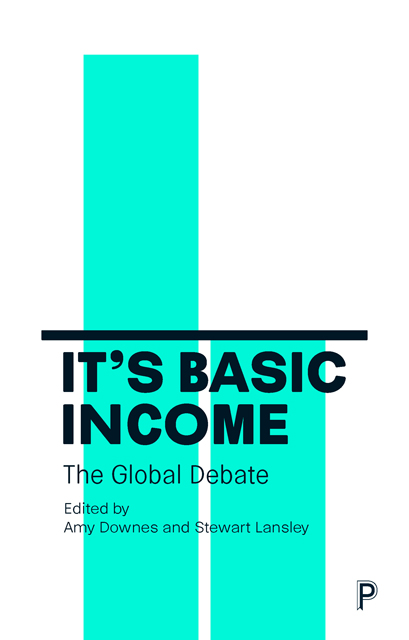13 - Basic income: a solution to which challenge?
Published online by Cambridge University Press: 11 April 2023
Summary
‘So, what if we started by reframing basic income as citizen equity? A collective investment by all of us, in you and every citizen.’
A universal basic income is an income unconditionally granted to all on an individual basis, without a means test or work requirement. It has been proposed at various times over the centuries by a great variety of thinkers. Two years ago, Nesta predicted that we would be hearing a lot more about basic income. However, the rising interest has been beyond astonishing. Figure 13.1, with data from Google Trends, shows the great jump in interest in the last four months of 2016 alone.
Basic income conversation can be viewed as an unlikely alliance between different interest groups. In one corner, there are the venture capitalists dreaming of a future of mass automation, robotics and algorithms, and the inherent massive disruption of existing labour markets this will cause. In another, the radical left advocating a new universal compact – addressing the challenges of market driven inequality and the rise of the 1%. Finally, there are the imagineering bureaucrats – seeking to rationalise the state and the complexity of managing the multiplicity of welfare provision through the provision of UBI and, in doing so, seeding market based welfare provision as opposed to state driven services and goods.
All of these motivations are valid and should be welcomed with the ideas developed alongside each other instead of against each other. We recognise that basic income has the capacity to address many of these challenges. However, we believe that, if implemented with the right intentionality, universal basic income has the potential to unlock even more value.
More than the redistribution of wealth in an increasingly structurally unequal world. More than a mark of solidarity to suggest ‘we’re all in this together’ in an age of austerity. And more than a way to just simplify the welfare state.
It can and it should be more. We just need to dream a bit bigger.
What’s in a name?
So, what if we started by reframing basic income as citizen equity? A collective investment by all of us, in you and every citizen.
What if we understood it as a new architecture of sovereignty and freedom? Economic sovereignty was a fundamental cornerstone of participation in democracy of the 19th century.
- Type
- Chapter
- Information
- It's Basic IncomeThe Global Debate, pp. 73 - 76Publisher: Bristol University PressPrint publication year: 2018

